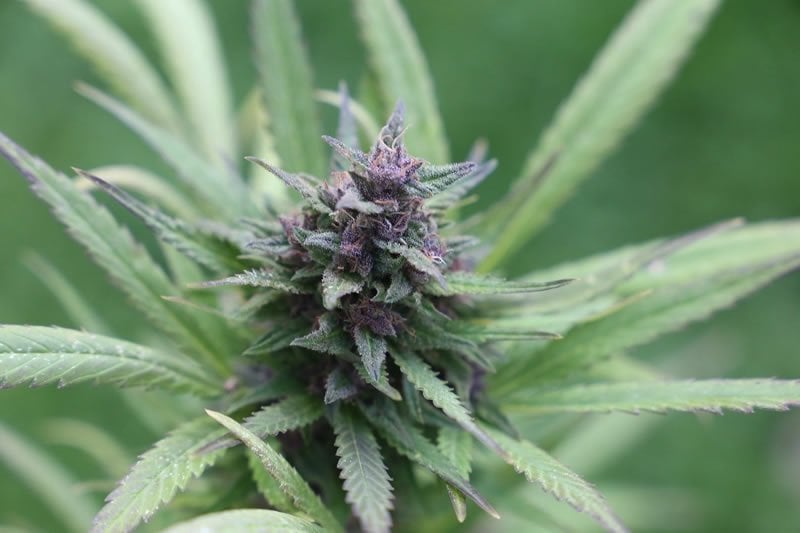Summary: Cannabis use in males appears to alter sperm before mating, increasing the risk of their offspring developing brain abnormalities in areas associated with mood, memory, learning, and reward.
Source: Duke University
A male’s marijuana use appears to alter sperm prior to mating, causing offspring to develop distinct abnormalities in areas of the brain that help govern learning, memory, reward and mood, according to a Duke-led study conducted on rats.
In the animal study, in which only the males were exposed to marijuana prior to mating, the brain anomalies of the offspring closely resembled changes that are evident in human babies exposed as fetuses to known neurotoxins such as pesticides and tobacco smoke.
“Our findings are translatable from rats to humans because the same brain circuits are involved in both humans and rats,” said Theodore Slotkin, Ph.D., professor in the department of Pharmacology and Cancer Biology at Duke and senior author of the study appearing online Feb. 20 in the journal Toxicological Sciences.
“This study demonstrates that the marijuana use by fathers, not just mothers, can have an impact on the health of offspring even when use occurs before conception,” Slotkin said.
Slotkin and colleagues designed the study to track whether offspring experienced any effect from a father’s pre-mating exposure to marijuana, specifically to the chemical THC that is responsible for the drug’s high.
While other studies have tracked the effect of maternal use of THC or marijuana during pregnancy, few studies have concentrated on fathers’ use. Last year, a separate Duke team found that a specific gene associated with autism appears to undergo changes in the sperm of men who use marijuana.

“Building on that work, we now show that paternal marijuana use affects brain development of offspring,” Slotkin said.
He said changes in the father’s sperm impact how the offspring’s brains develop in the womb. Key neurological pathways form, but their activity is suppressed, causing functional deficiencies that affect learning, memory and attention.
“These findings are particularly important now as more states legalize marijuana, while the impact of both active and passive exposures are not fully understood,” Slotkin said.
In addition to Slotkin, study authors include Samantha Skavicus, Edward D. Levin and Frederic J. Seidler.
This research was conducted as part of the CIPHERS Project at Duke, which is supported by a grant from the John Templeton Foundation. The CIPHERS project is composed of three research components and an outreach and engagement component. The CIPHERS Project utilizes human study cohorts, a rodent population, and an epigenetic lab. The project studies whether male cannabis use prior to conception might alter sperm epigenetics, whether those changes are passed on to children, and what the health implications of those changes might be.
In light of the shifting policy landscape around marijuana use in the U.S. and Canada, findings will be shared with relevant policymakers, the medical community, and the public. The CIPHERS Project hopes to contribute research findings and broader understanding to wider public health conversations regarding cannabis use, male reproductive health, and family planning.
Source:
Duke University
Media Contacts:
Sarah Avery – Duke University
Image Source:
The image is in the public domain.
Original Research: Closed access
“Paternal Δ9-Tetrahydrocannabinol Exposure Prior to Mating Elicits Deficits in Cholinergic Synaptic Function in the Offspring”. Theodore A Slotkin, Samantha Skavicus, Edward D Levin, Frederic J Seidler.
Toxicological Sciences doi:10.1093/toxsci/kfaa004.
Abstract
Paternal Δ9-Tetrahydrocannabinol Exposure Prior to Mating Elicits Deficits in Cholinergic Synaptic Function in the Offspring
Little attention has been paid to the potential impact of paternal marijuana use on offspring brain development. We administered Δ9-tetrahydrocannabinol (THC, 0, 2, or 4 mg/kg/day) to male rats for 28 days. Two days after the last THC treatment, the males were mated to drug-naïve females. We then assessed the impact on development of acetylcholine (ACh) systems in the offspring, encompassing the period from the onset of adolescence (postnatal day 30) through middle age (postnatal day 150), and including brain regions encompassing the majority of ACh terminals and cell bodies. Δ9-Tetrahydrocannabinol produced a dose-dependent deficit in hemicholinium-3 binding, an index of presynaptic ACh activity, superimposed on regionally selective increases in choline acetyltransferase activity, a biomarker for numbers of ACh terminals. The combined effects produced a persistent decrement in the hemicholinium-3/choline acetyltransferase ratio, an index of impulse activity per nerve terminal. At the low THC dose, the decreased presynaptic activity was partially compensated by upregulation of nicotinic ACh receptors, whereas at the high dose, receptors were subnormal, an effect that would exacerbate the presynaptic defect. Superimposed on these effects, either dose of THC also accelerated the age-related decline in nicotinic ACh receptors. Our studies provide evidence for adverse effects of paternal THC administration on neurodevelopment in the offspring and further demonstrate that adverse impacts of drug exposure on brain development are not limited to effects mediated by the embryonic or fetal chemical environment, but rather that vulnerability is engendered by exposures occurring prior to conception, involving the father as well as the mother.






